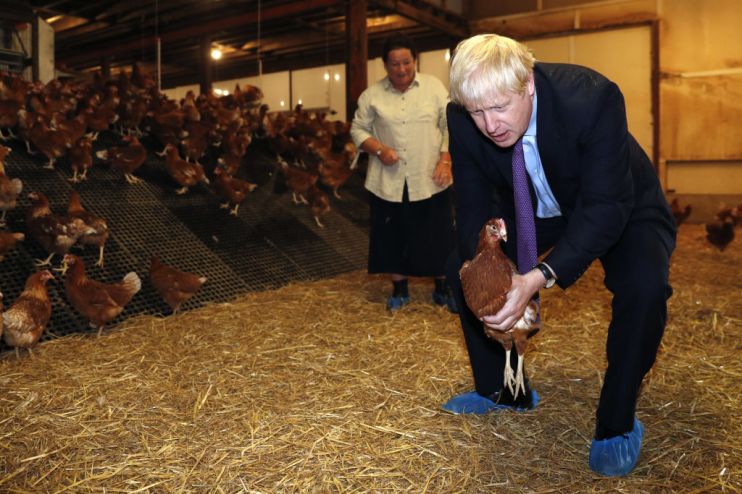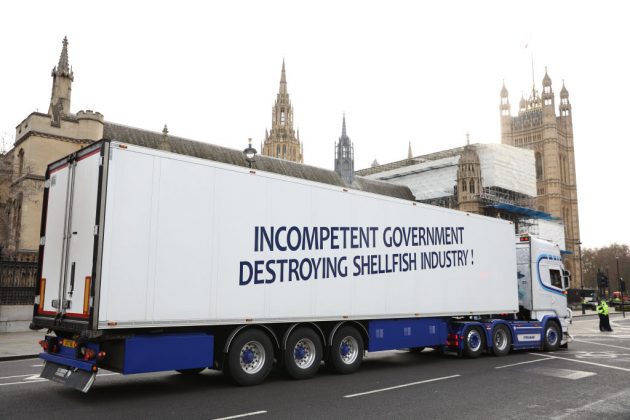Home to roost? Poultry industry warns of ‘catastrophic’ border disruption

The UK’s chicken farmers have become the latest food suppliers to slam the government over new Brexit border rules, which are causing enormous disruption to supply chains.
Under the new rules, exporters are facing an entirely new set of customs rules, with products of animal origin needing new paperwork and checks at borders.
“These issues are far bigger than just teething problems, said Shraddha Kaul, director of external affairs at the British Poultry Council (BPC) told City A.M.. “If they continue the problems could have a catastrophic impact on food supplies.”
She added that the issues were only manageable at the moment because trade volumes remain far below the normal for this time of the year.
Kaul said that the hauliers were declining to take poultry products for export, as has been happening for other forms of fresh produce.
In addition, she bemoaned the new paper-based certification system, saying that the extra bureaucracy was heaping pressure on exporters and causing severe delays at the border.
“Most businesses only had a week to prepare for this, and now they are facing lots of added pressure while they are already dealing with the problems of the pandemic.
“The government has to get this fixed by ironing out the complexities around products of animal origin.”
Kaur’s comments follow similar complaints from representatives of the fresh fish and meat industries over the last couple of days.
Before the Open: Get the jump on the markets with our early morning newsletter
Ministers continue to insist that the current delays are down to short-term problems rather than structural issues.
But a spokesperson for the Food and Drink Federation said that the problems would get worse as trade volumes increase in the weeks to come.

“UK exporters of seafood have already been badly impacted by the decision of logistics companies to temporarily stop carrying their products. As trade volumes increase, there is a greater likelihood that other sectors of the food and drink industry will be impacted by disruption at ports and borders.
“It is in the best interests of both the UK and the EU to ensure that these new arrangements work, and that trade in food and drink can continue to flow with as little friction as possible”, they added.
Yesterday seafood exporters descended on London in lorries bearing slogans such as “Brexit carnage” in protest at the disruption.
In response Prime Minister Boris Johnson announced a £23m compensation scheme for those affected by the delays.
“I sympathise very much and understand their frustrations, and things have been exacerbated by Covid, and the demand hasn’t been what it was before the pandemic and that’s one of the problems we’re trying to deal with”, he said.
“Where businesses, through no fault of their own, have faced difficulties exporting where there is a genuine willing buyer, there’s a £23 million fund to help out.”
As a result of the new system, tonnes of produce worth hundreds of thousands of pounds coming from the UK has been confiscated at EU ports over the past two weeks.
Nick Allen, chief executive of the British Meat Processors Association, told The Times that one British exporter had 23 tonnes of meat worth £500,000 impounded at Calais, France, for three days.
Most of the meat that has been impounded will need to be destroyed as products like pork and chicken need to be processed within eight days of being slaughtered.